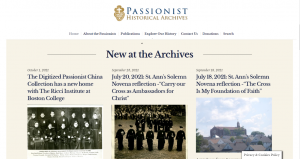Dr. Shuhua Fan, Professor of History, has published an article titled “Confucius Institutes in the Xi Jinping Era: From Peak to Demise in the United States,” in Xiaobing Li and Qiang Fang, eds., China Under Xi Jinping: A New Assessment (Leiden University Press, 2024), pp. 165-200.
Confucius Institutes in the Xi Jinping Era: From Peak to Decline in the United States
Abstract: This article examines the Confucius Institutes (CI) in the Xi Jinping era, focusing on its expansion and demise in the United States. In 2004, the People’s Republic of China (PRC) established its first CI to export Chinese language and culture overseas. Under Xi, CIs expanded significantly across the globe, with about 118 CIs in the US. However, when China became more assertive and combative in both domestic and foreign policies and when U.S.-China relations deteriorated, U.S. leaders urged the closure of the CIs. As of May 2023, there were a handful of CIs still in operation.
Why did the Chinese government initiate the CIs? What caused the stunning CI expansion during the early Xi era? Why did mounting hostility to CIs rise in Western nations and especially in the U.S. from the mid-2010s? Why and how did the mass closure of CIs take place in the U.S. in the past few years?
This article argues that CIs are a part of China’s cultural diplomacy to expand its cultural/educational influence and promote its international image overseas, thus serving the country’s national interest. China’s vigorous campaigns to project its soft power abroad via CIs and the U.S.’ soaring resistance are both driven by national interests. The mass closure of CIs in the U.S. is a result of the confrontation of the two countries’ national interests.
Key Words: Confucius Institutes, cultural diplomacy, Chinese cultural nationalism, U.S.-China relations, language and culture, CI demise








